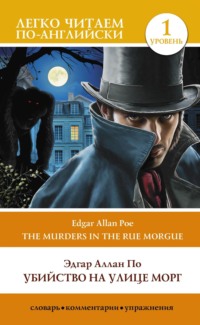Убийство на улице Морг. Уровень 1 / The Murders in the Rue Morgue

Добавить В библиотекуАвторизуйтесь, чтобы добавить
Добавить отзывДобавить цитату
Убийство на улице Морг. Уровень 1 / The Murders in the Rue Morgue
Вы ознакомились с фрагментом книги.
Для бесплатного чтения открыта только часть текста.
Приобретайте полный текст книги у нашего партнера:
Всего 10 форматов
Авторизация